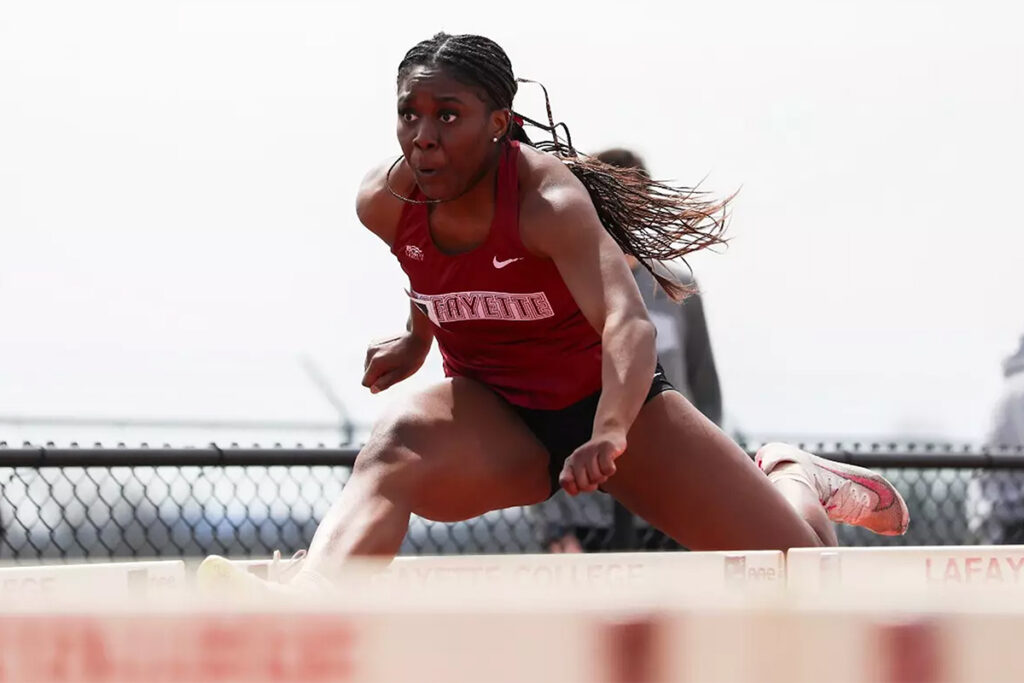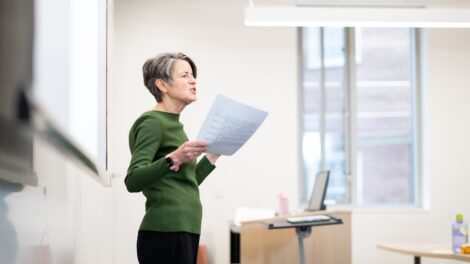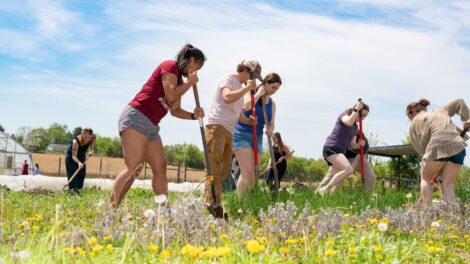Inside the classroom: Sports Psychology course designed for students to unlock peak performance
Video by Olivia Giralico
Inside the classroom is a new series offering a glimpse into classes at Lafayette, the talented professors who teach them, and how they impact and define a student’s experience.
By Genamarie McCant
PSYC 270: Sports Psychology examines human performance, designed to be relevant to all students, whether they are student-athletes or engaged in other performance-driven activities. The mental processes and challenges encountered in both areas are often similar, emphasizing the universal nature of these psychological factors across athletic and nonathletic performance settings.
“I want to invite students to share their experiences in terms of human performance—we all perform every day. Whether it’s giving a speech, delivering a presentation, or taking an exam, these are all forms of performance,” says Jaison Freeman, psychology instructor, assistant to the president for strategic initiatives, and mental performance consultant for Lafayette’s Division I men’s basketball program. “The goal is learning what enables us to perform at our best and how we can reach those peak performances in our journey toward becoming the best versions of ourselves,” Freeman explains.

“As faculty at Lafayette, we bring our whole selves to the classroom,” Freeman shares, emphasizing the importance of authenticity and engagement in the learning environment. He highlights the valuable contributions of student-athletes, whose diverse experiences and perspectives—shaped by their participation in collegiate athletics—enrich classroom discussions.

Jaison Freeman serves as a psychology instructor, assistant to the president for strategic initiatives, and mental performance consultant for the men’s basketball program. | Photo by Adam Atkinson
By incorporating real-world examples—both his own and those of his students—Freeman not only contextualizes theoretical concepts with practical application, but also fosters a deeper, more meaningful connection between students and the course material.
“I want Lafayette students to feel like they’re not just learning theories, but also gaining insights that connect with their real-world experiences,” Freeman says. “My goal is for students to be able to apply sport and performance psychology theories and concepts they learn beyond the classroom. The value of a liberal arts education is to think critically and actively about how to take the information out of the classroom and into the world.”
During his doctoral studies in sports psychology, Freeman served as a mental performance specialist for Florida State’s track and field program. He often reflects on the psychological challenges student-athletes face—particularly in track and field—drawing on experiences with student-athletes like Angel Awono ’25.

Angel Awono ’25 is a member of the Lafayette Division I track and field team.
“The sport’s technical nature, combined with hours of training and brief moments of performance, intensifies the psychological pressure,” Freeman says. “Competitive anxiety is heightened by the buildup and the short window of opportunity—athletes must perform optimally when it matters most. How do you find that advantage, the difference between being a champion or not, between winning a medal or not?”
As a senior on Lafayette’s women’s track and field team in her final collegiate season, Awono found the course to be well timed, offering valuable strategies for managing the psychological demands of her sport and specific events. Awono echoes Freeman’s perspective, emphasizing that track and field is as much a mental challenge as it is a physical one. One of her primary events, the 400-meter hurdles, is especially demanding—requiring the speed and endurance of a 400-meter sprint combined with the technical precision of clearing 10 hurdles.
Awono, who enrolled in the course during her senior year, believes that taking sports psychology earlier in her academic and athletic journey could have had an even greater impact on her personal growth and collegiate athletic performance.
“This course is a great bridge between athletics and academics. I think any student-athlete who doesn’t take this course could be missing a crucial opportunity to better understand the emotional and mental aspects of their sport,” Awono says. “It’s rewarding to see how what we’re learning applies to real-life situations. You live these theories, and through studying them, you realize just how accurate they are.”

